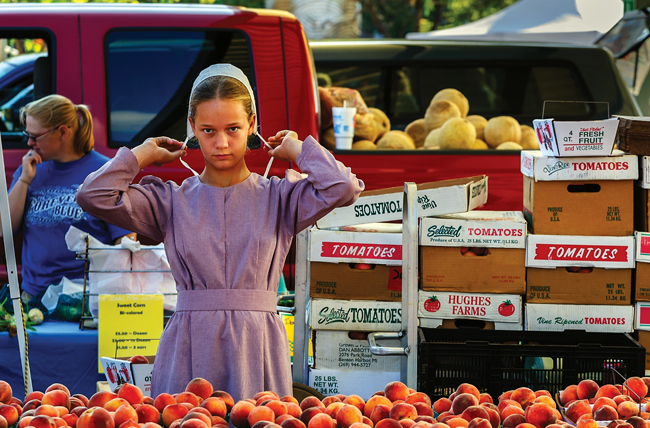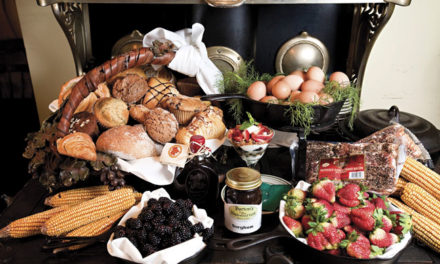BY CARMEN SIERING
There’s nothing more quintessentially Bloomington than buying locally produced goods from the folks who produce them, and nothing epitomizes that buy-local spirit more than the Bloomington Community Farmers’ Market.
Now celebrating its 40th season, the Farmers’ Market started with just 23 vendors. That’s a far cry from the 130 vendor applications accepted this year. Of course, not all of those vendors are on hand every Saturday at Showers Common, but the market did average 84 farm vendors each week from April to November in 2013. Fourteen prepared food vendors, Info Alley, demonstrations and events, as well as staged and informal entertainment add to the festive atmosphere that attracted an average of 7,000 visitors each week last year.
Don Dunkerly, 65, has been a regular vendor since the first Farmers’ Market was held in Third Street Park on July 26, 1975. He’s seen a lot of changes. “You used to just pull up to the parking lot and people came to the back of your truck to check out what you had,” he says. “We didn’t have food vendors or demonstrations. It was just farmers bringing in their stuff. But the community really supported it.”
Market Coordinator Marcia Veldman says support for the market helps it thrive. “Reading the historical record and talking to vendors, it’s clear this community embraced the market from the day it opened,” she says. The City of Bloomington has also supported the market, from the construction of Showers Common as a permanent marketplace to providing staff and resources to keep it running. Times change, but Veldman says the goal has remained the same. “While the market has developed and changed over the years, the core mission of supporting small farmers and giving customers a place to engage with them remains the focus.”
Kathy Aiken, 69, was also at that first market back in 1975. Now a customer representative on the Farmers’ Market Advisory Council, Aiken says she wouldn’t miss a Saturday. “It’s my place to connect with the community,” she says. “There’s nothing more basic than buying food from the people who grow it and meeting up with your friends. That fulfills a very basic, human need in all of us.”











